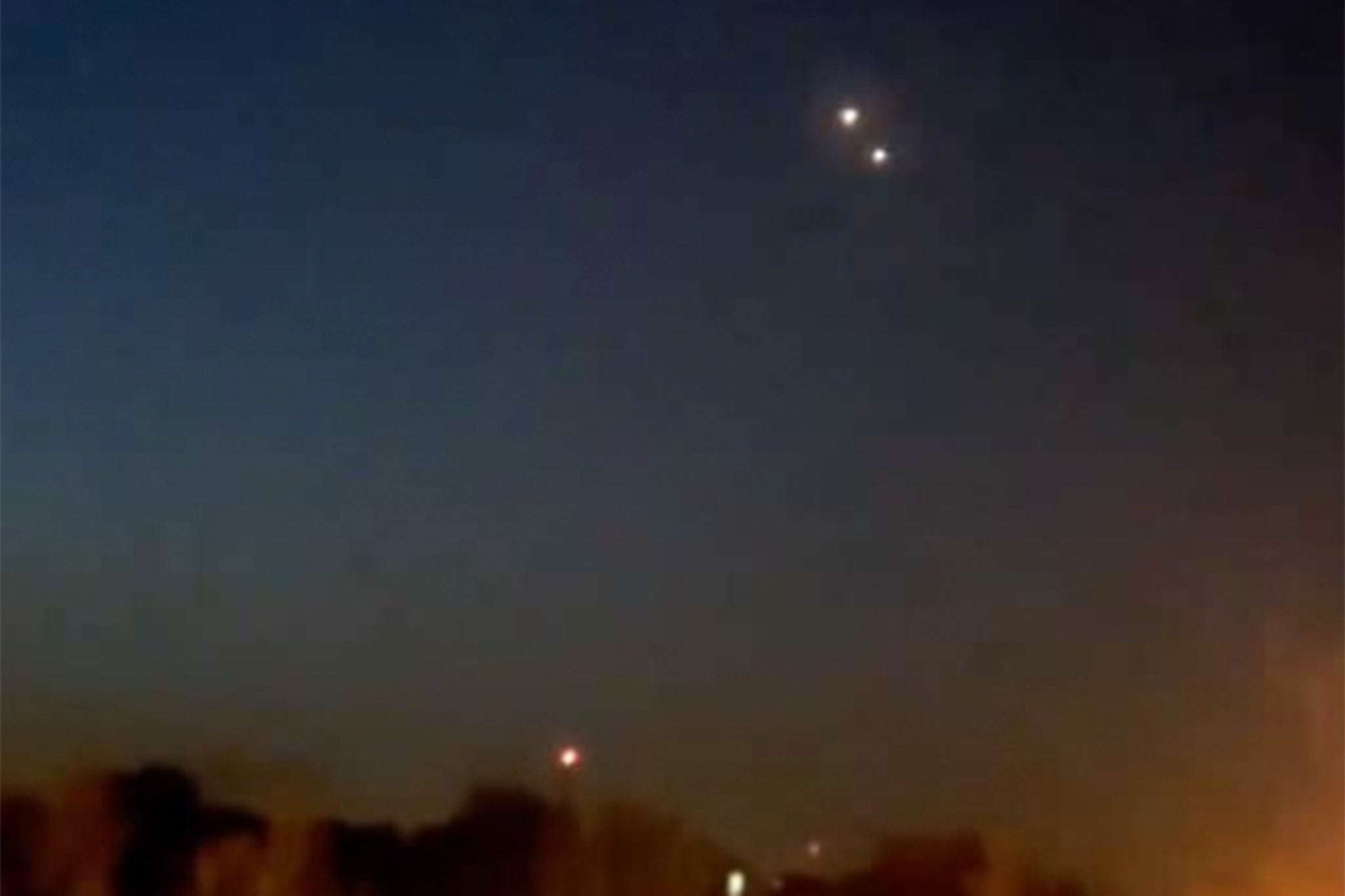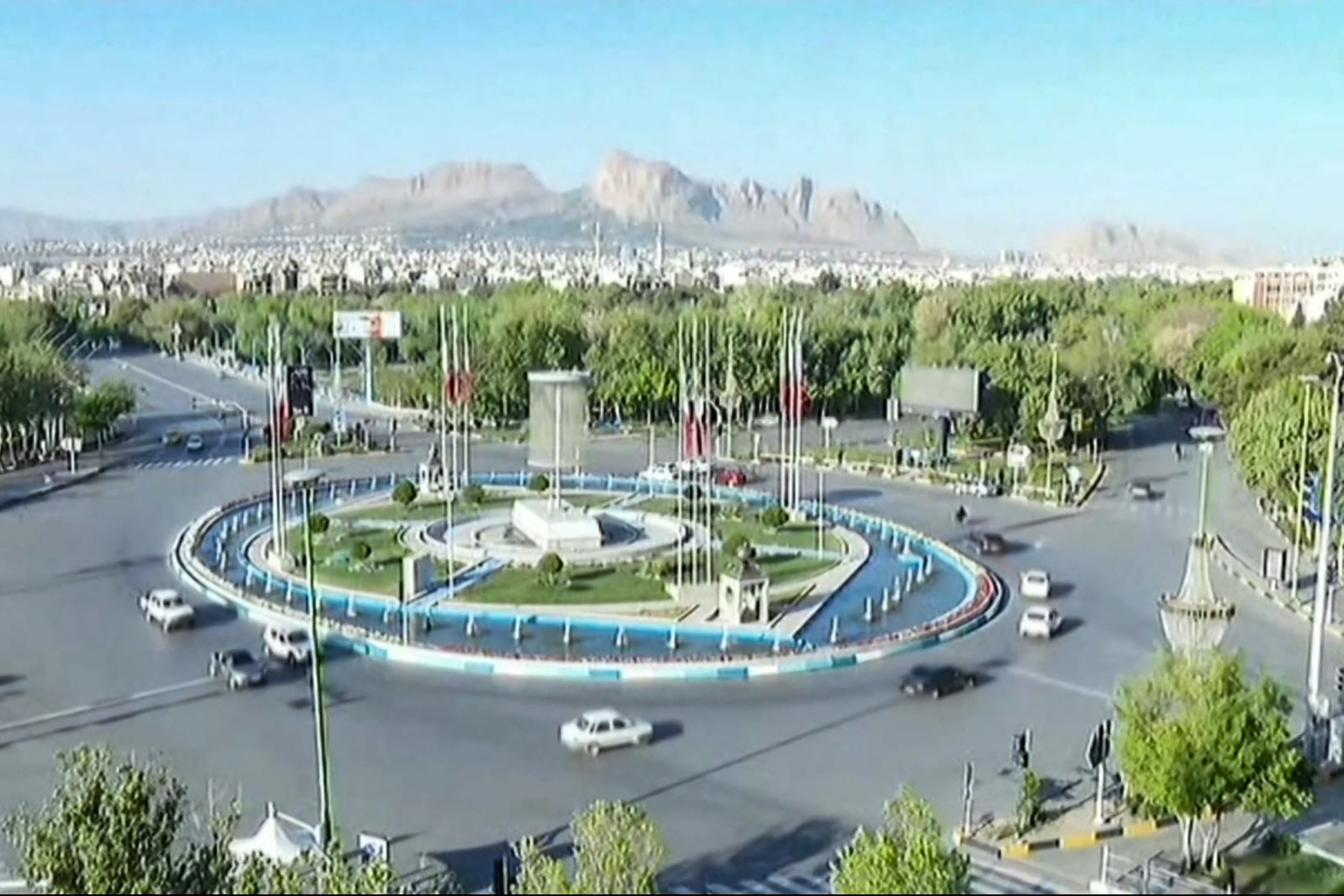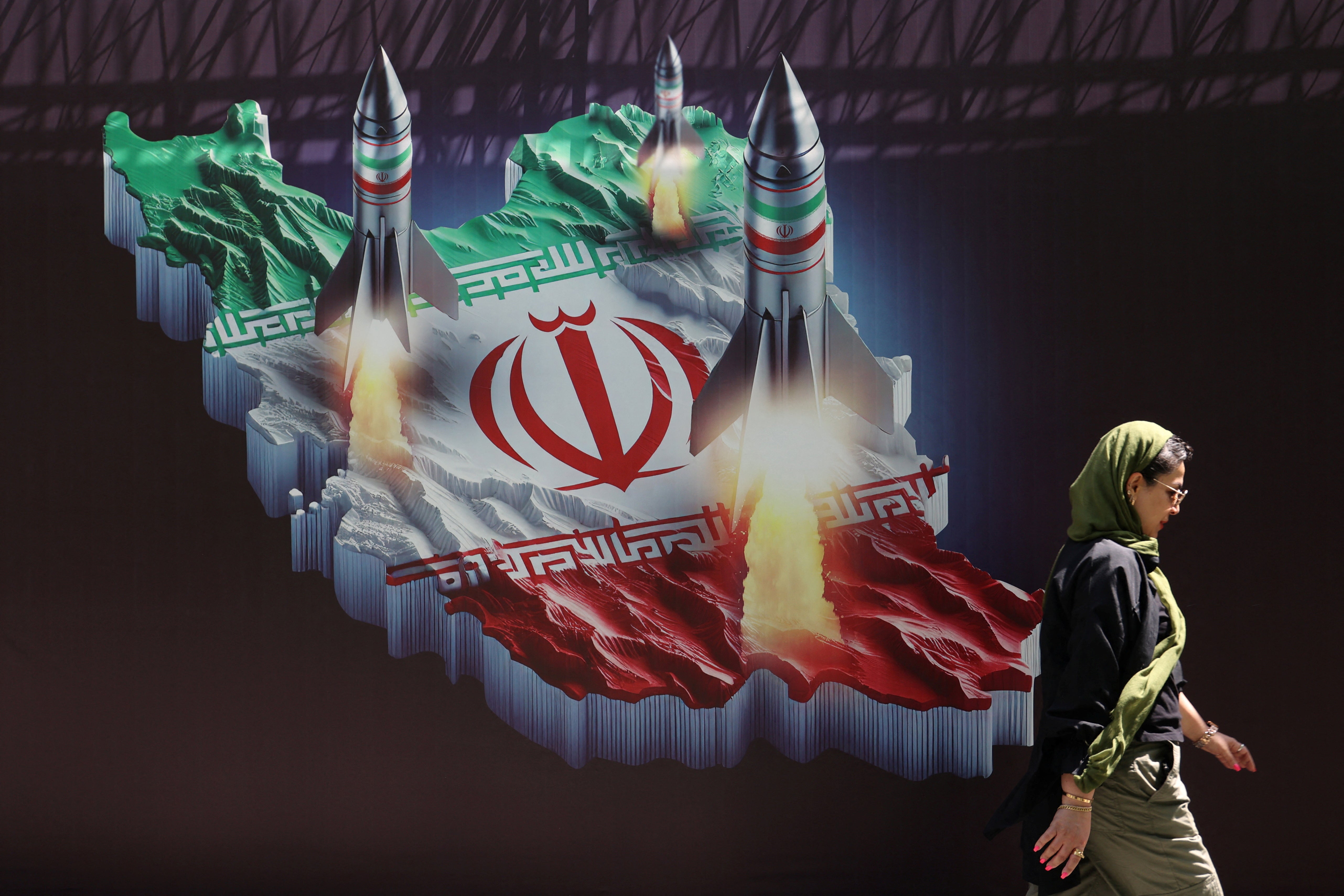What Israel’s strike inside Iran tells us about Netanyahu
With the ratcheting of tension in an area bristling with arms, a misstep by either side may lead to the law of unintended consequences – the feared conflagration spreading across the Middle East and beyond
The conflict between Israel and Iran, fought out often in secret and through proxies, has now erupted with Israel carrying out strikes deep inside Iran six days after Tehran’s attack with more than 350 drones and missiles.
Explosions were heard near the central city of Isfahan, which has a large airbase, a major missile production complex and number of nuclear facilities.
Videos from the city showed orange flashes in the night sky, along with sounds of what appeared to be sustained bursts of anti-aircraft artillery.
Israel has so far maintained silence about what happened and the initial reaction of the Iranian authorities was to claim that nothing very serious has taken place.
American officials, however, confirmed the Israeli military action and Iran’s semi-official Fars news agency, which is close to the Islamic Revolutionary Guard Corps (IRGC), reported that blasts had been heard in the city, activating local air defence systems.

Later Iranian officials said the Isfahan military base had been struck and a separate attack in Tabriz, 500 miles away, had been thwarted. However, attempts were still being made to play down what has unfolded.
One official said: “The foreign source of the incident has not been confirmed. We have not received any external attack, and the discussion leans more towards infiltration than attack.” The source claimed the drones used actually may have been flown by saboteurs internally.
The US, UK and other Western states have been urging Benjamin Netanyahu’s Israeli government not to carry out a direct assault on Iran, and the Biden administration has made clear it will not take part in any such mission.
Israel could have targeted any of Iran’s allies: Hezbollah in Lebanon, Syrian and Iraqi militias, and the Houthis in Yemen instead of Iran, so the Isfahan attack takes the strife between the two countries to a dangerous new level.
Even before any Iranian retaliation comes, we await to see what other military steps Israel takes. The decision on targeting was left to a tight circle in the war cabinet consisting of the prime minister, defence minister Yoav Gallant and Benny Gantz, the leader of the main opposition party who joined the government after the 7 October Hamas massacre.
Gantz, a former head of the military, is said to have pressed for hitting back at Iran immediately, while others in the cabinet, like the far-right security minister Itamar Ben-Gvir, demanded that Israel “go berserk”.

But Netanyahu and Gallant held back while intense consultations took place with US officials and talks were held with a number of Arab states.
Israel, by showing it can get past Iranian air defences, may decide to call a halt to any further action for now. In January, Pakistan carried out strikes into Iran after Tehran carried out missile attacks on Pakistani bases of a Balochi militant group. The confrontation ended after that one round of exchanges.
But the animosity between Iran and Israel is far more bitter and ingrained. The Jewish state sees the Islamic Republic as an existential threat, something Netanyahu has played up in his long political career as he presented himself as “Mr Security”.
Overwhelming concern for Israel is of a nuclear-armed Iran. The possibility of this, ironically, has become much stronger since Donald Trump, as president, pulled the US out of the nuclear agreement between Iran and the international community under pressure from the Israelis, the Saudis and other Sunni Gulf states.
The International Atomic Energy Agency (IAEA), said the Isfahan nuclear facility has not been hit in the air strikes. But the Netanyahu government may be tempted now to use the retaliatory opportunity it has to try and damage Tehran’s ability to get the bomb.
It would, however, be extremely difficult to do so with any great effect without American military help because most of the important sites are deep underground with sophisticated air defences. And that help is not forthcoming.

It is also unlikely that Saudi Arabia, on a path of building links with Iran, the largest Shia power in the region, would allow Israeli warplanes to fly over its airspace to carry out such a mission, meaning that extensive air-to-air refuelling would be needed – not an easy operation to carry out at scale.
After the Iranian air assault on Israel was thwarted, with American, British, French and Jordanian aircraft playing a major role in shooting down drones and missiles, Joe Biden urged Netanyahu to “take the win” and not escalate the conflict.
By striking inside Iran, the Netanyahu government has shown that it is prepared for escalation. There may not be immediate repercussions – Iranian officials have said there are no plans for any retaliation for now.
This maintains the line it took after launching its air raid in response to the Israeli killing of an IRGC general and senior officers at its consulate in Damascus, saying that was the end of the matter for the time being.
But with strike and counter-strike, ratcheting of tension in an area bristling with arms, a misstep by either side may lead to the law of unintended consequences – the feared conflagration spreading across the Middle East and beyond.
Join our commenting forum
Join thought-provoking conversations, follow other Independent readers and see their replies
Comments
Bookmark popover
Removed from bookmarks